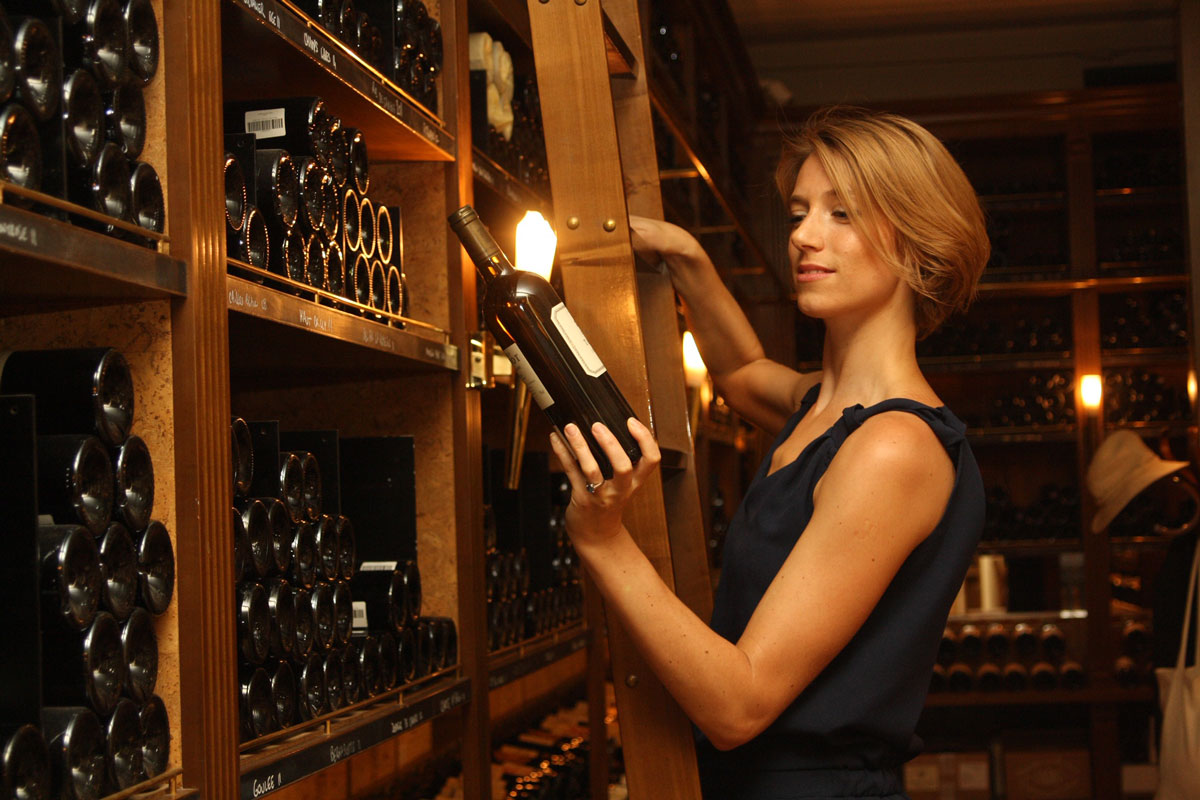The wondrous world of wine can be described in many ways: like fine art, or science, and that latter point is certainly the case if you want to start understanding how to go about ageing your glug with the intention of making it taste even better.
We’ve already found out how to tell if the bottles of wine you may already own are actually any good to drink, with advice from Brae Restaurant sommelier Sean McManus. But what if you’ve never thought about ageing a wine before, or someone gifts you a bottle and tells you it will be great in five years time? How do you go about storing it and looking after it? After all, it’s not just a case of leaving it in a cupboard waiting for the day it can be popped open.
There’s a science to ageing (and buying the right wines in the first place, to age). To find out how to do this, and to allow your bottles to vieillir as beautifully as yourself, we once again turned to Sean to find out all there is to know.
View this post on Instagram
Sean starts by telling us, “Not all wine tastes great old. Not all wine is meant to be old. Most wines are produced to drink young.” A slight curveball you might think. He also provides one bit of very simple advice that may already be common knowledge, but just in case, Sean says, “If your bottle has a Stelvin enclosure (a screw-cap) you have to drink it young.”
“If a producer intends for a wine to be aged, they will be put the wine under cork enclosure and that’s because wine breathes.”
“It breathes through the cork and marinates in its own juices, feeding off itself essentially, and when the time comes, the symphony of oxygen, cork and wine reach their peak and the cork practically begs to be ripped off.”
So, onto the science. “For a wine to age, we need three things: acid; tannin or sugar. Not all together, but each plays a key role in how a wine will age if correctly cellared.” More on cellaring later.
Lab coats and goggles on for this next lesson.
“Acid and tannin both act as preservatives, helping slow down the rate of oxidation in wine, think of the way the inside of an apple goes brown quickly after being exposed to air. The same thing can happen to wine with too much oxygen or age.”
“Sugar plays a key role too, hence why some of the most expensive old wines in the world are sweet wines from Bordeaux.”
But if those three ingredients weren’t enough to get your head around, there’s one key ingredient that has a huge influence over how a wine ages. The grapes themselves.
Sean explains, “For white wines, you’ll want to look for laser-like acidity in grape varieties such as Riesling and Chenin Blanc, along with the cult Australia Semillon.”
“With regards to reds, go for bold Syrah/Shiraz, Sangiovese, Nabbiolo, Cabernet Sauvignon and Pinot to name a few.”
“That’s not to say that any bottle produced from these grapes will age well, they need to hail from great regions of the world or made by reputable producers.”
So, that home cellar of yours.
“High-quality wine can be destroyed if left on the back seat of your car on a hot day, and if you don’t own a temperature-controlled fridge, you’ll want to store your wine in the coldest part of your house that is free from aromas.”
“That may be a basement or under the stairs. The important thing to remember is that hot air rises and rooms in your house can fluctuate in temperature too much. Avoid these places.”
Ultimately, Sean says to “do your research!”
“If you like something, have a hunt around online and find out if anyone else is drinking any older styles from the same producer.”
“Don’t fall into the trap of just buying the cheaper wine from that producer and assume it will age well.”
“Generally, you want to look for single-vineyard bottling, rather than the yearly blend of the cash crop.”
Part of the fascination with wine is the trial and error methodology it incurs. But it also means you get to try a wide variety of grape varietals from regions all over the world. Ageing can be fun too, so head to your local bottle shop, buy a case of something good and experiment.
